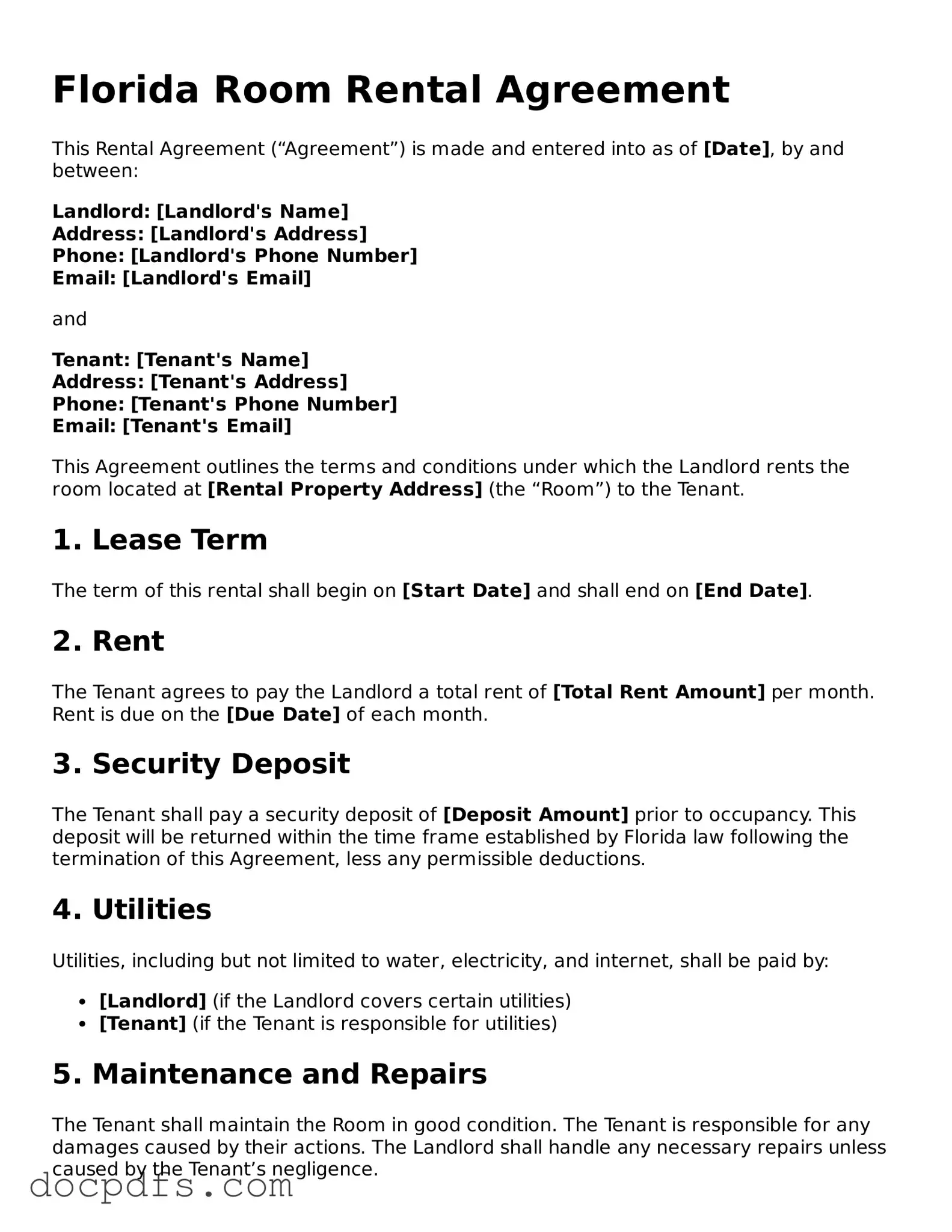Free Florida Room Rental Agreement Form
The Florida Room Rental Agreement is a legal document that outlines the terms and conditions under which a room is rented in the state of Florida. This form serves to protect both the landlord and tenant by clearly defining their rights and responsibilities. Understanding this agreement is essential for anyone looking to rent or lease a room in Florida.
Open Room Rental Agreement Editor Now

Free Florida Room Rental Agreement Form
Open Room Rental Agreement Editor Now

Open Room Rental Agreement Editor Now
or
⇓ Room Rental Agreement
Finish this form the fast way
Complete Room Rental Agreement online with a smooth editing experience.